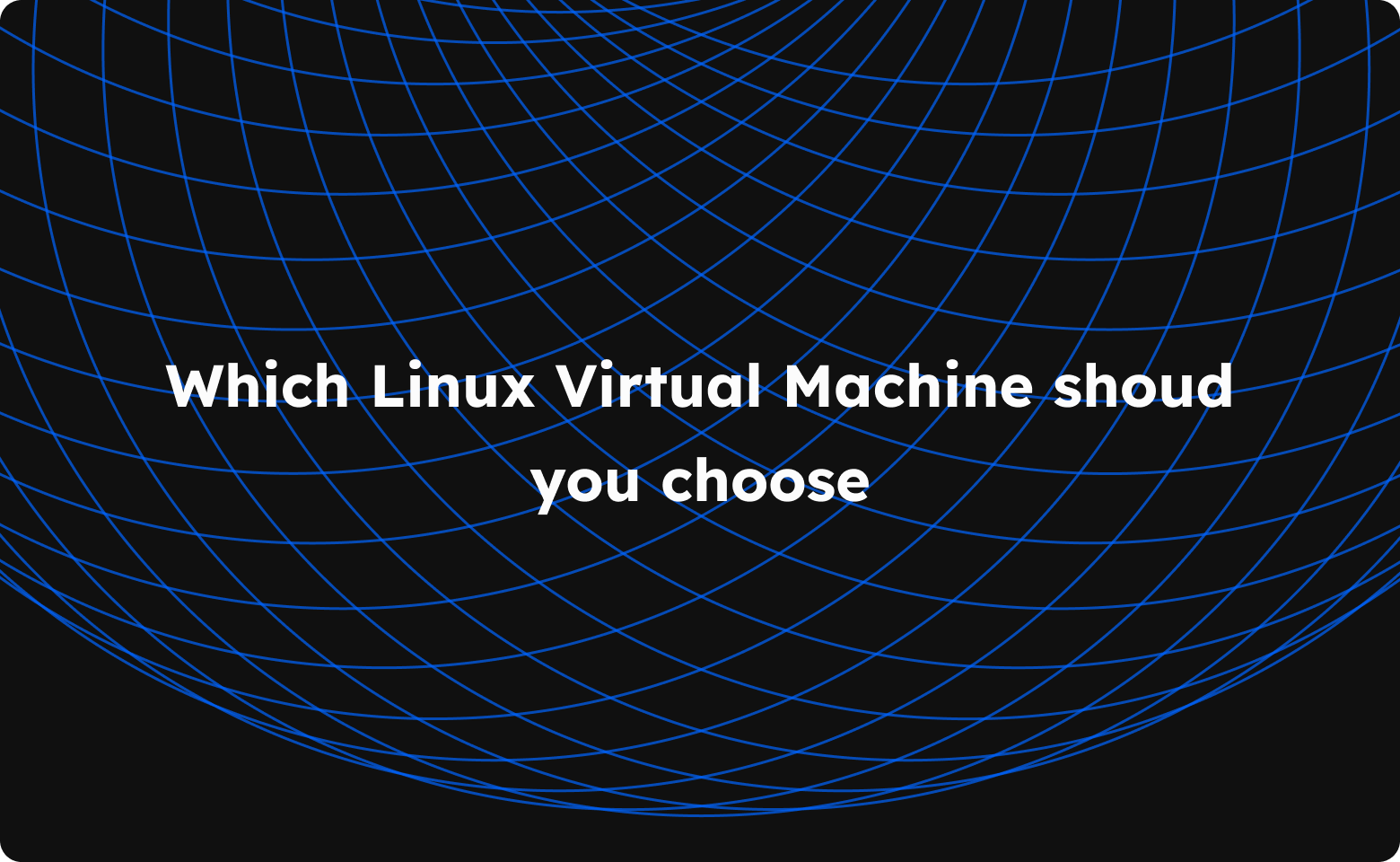Choosing the right Linux Virtual Machine for your needs
 Struthi Giridhar
Struthi Giridhar
Imagine having a Russian nesting doll of computers – each one complete and self-contained, yet all fitting snugly within a single physical machine. That's the magic of a Linux virtual machine. It's as if you've discovered a way to fold space and time, creating multiple universes of computing power within the confines of a single device.
Intrigued? You should be. Because in the next few minutes, we figure out what exactly is a Linux virtual machine, and why you should consider using one. Let's dive into the world of Linux virtualisation.
Jump to top 10 linux virtual desktop providers.
What is a Linux Virtual Machine?
A Linux virtual machine (VM) is a software-based emulation of a physical computer that runs the Linux operating system. It allows you to create multiple isolated environments on a single physical machine, each running its own instance of Linux. This virtualization technology enables you to maximise resource utilisation, enhance flexibility, and streamline your IT infrastructure.
Key Features of Linux Virtual Machines
Versatility- Run multiple Linux distributions on a single host.
Resource Optimization- Efficiently allocate and manage computing resources.
Cost-effectiveness- Reduce hardware expenses and energy consumption.
Snapshot and Cloning Capabilities- Easily backup and replicate environments.
Scalability- Quickly adapt to changing workload demands.
Command Line Interface- Access powerful and flexible management tools through the CLI.
Why Use a Linux Virtual Machine?
Windows or Linux?
Linux is an open-source, free operating system distributed under the GPL license. It uses a monolithic kernel, provides access to its source code, and offers military-grade encryption. Linux has three types of users (Regular, Administrative, and Service), consumes more running space but doesn't lower system efficiency. It's less targeted by hackers, has case-sensitive file naming, and is sometimes used for hacking purposes. While powerful, Linux isn't considered easy to use for everyone and has lower software compatibility.
In contrast, Windows is a proprietary, costly operating system with a micro-kernel architecture. It has four user types (Standard, Administrator, Child, and Guest) and doesn't provide source code access. Windows consumes less space than Linux but can lower system efficiency. It's more frequently targeted by hackers due to its widespread use. Windows offers higher software compatibility, isn't case-sensitive in file naming, and isn't specifically designed for hacking purposes. Like Linux, it's not considered universally easy to use. Windows lacks built-in military-grade encryption and operates under a proprietary commercial software licence.
Onboard a enterprise grade workspaces
Windows 365 vs. Linux 365: A New Frontier with Neverinstall
When you should choose Linux over Windows
The advantages of Linux virtual machines over physical machines are numerous and compelling. Here are some key benefits that make Linux VMs an attractive option for businesses and developers alike:
Cost Savings
Reduce hardware expenses and energy costs by consolidating multiple workloads onto fewer physical machines and cost effective licenses.Flexibility and Scalability
Easily create, modify, and delete VMs as needed, adapting to changing requirements without hardware limitations.Better Resource Utilisation
Optimise the use of CPU, memory, and storage across multiple VMs.Performance Enhancements
Leverage advanced virtualization technologies for improved performance and efficiency.Disaster Recovery
Implement robust backup and recovery solutions with ease.
Use Cases for Linux Virtual Machines
Development and Testing
Create isolated environments for software development and testing.Legacy Application Support
Run older applications on modern hardware.Server Hosting
Host multiple websites or services on a single physical machine.Secure Experimentation and Learning
Safely explore new Linux distributions or configurations without risk to your main system.
When to Use a Linux Virtual Machine?
Linux virtual machines excel in various scenarios, making them an ideal choice for many use cases. Consider using a Linux VM when:
You need isolated environments for development or testing.
Running multiple Linux distributions on the same host is required.
Cost-efficient and scalable cloud-based solutions are necessary.
Experimenting with new configurations or software without affecting your primary system.
Top 10 Linux Virtual Machine Providers
When it comes to choosing a Linux virtual machine provider, the options can seem overwhelming. Let's take a closer look at some of the best Linux VM providers in 2024, exploring their strengths and weaknesses based on public sentiment:
continue reading - https://blog.neverinstall.com/linux-virtual-machines-providers/
Subscribe to my newsletter
Read articles from Struthi Giridhar directly inside your inbox. Subscribe to the newsletter, and don't miss out.
Written by
